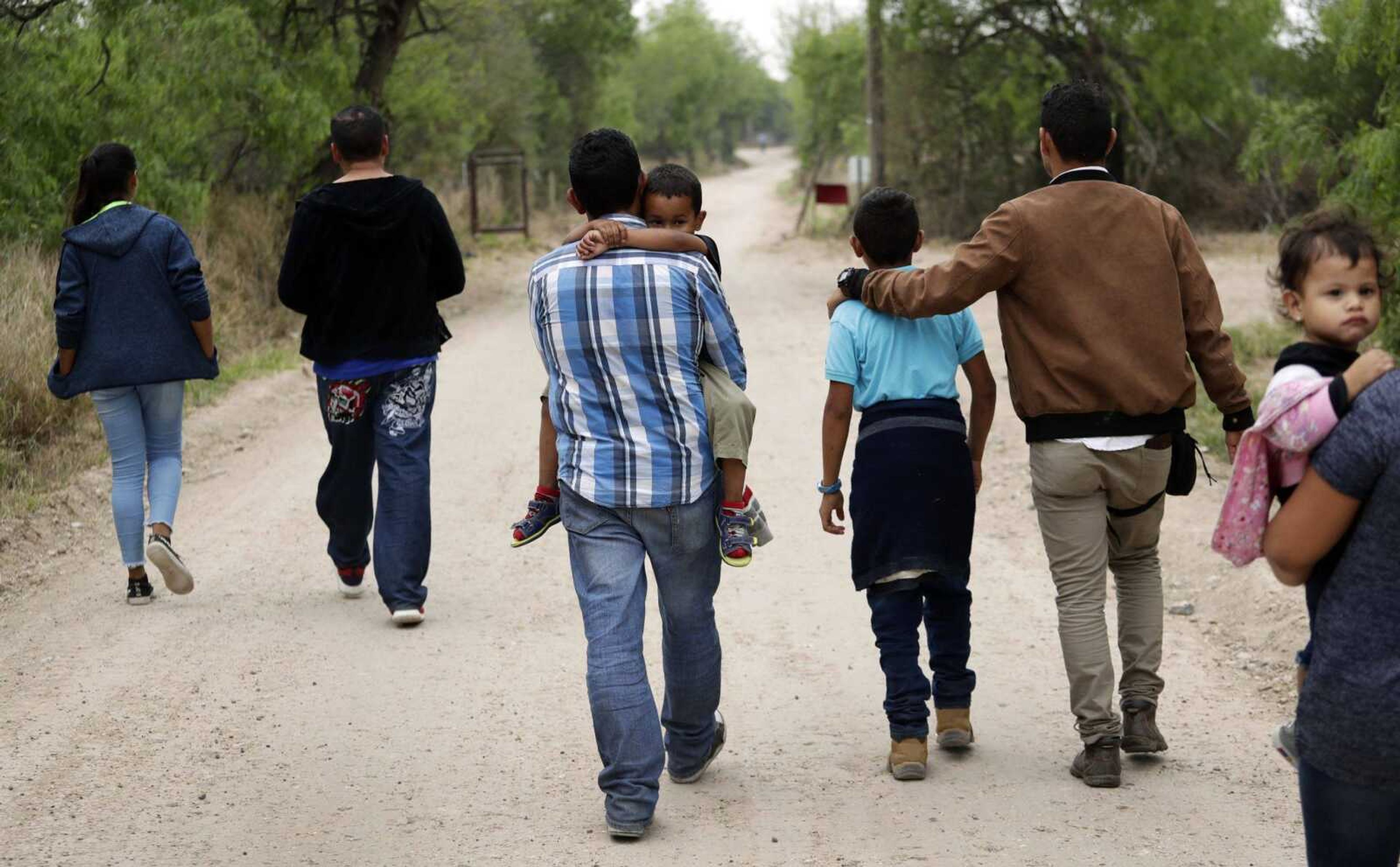Border Patrol acknowledges fingerprinting of migrant youth
HOUSTON -- U.S. border authorities say they've started to increase the biometric data they take from children 13 years old and younger, including fingerprints, despite privacy concerns and government policy intended to restrict what can be collected from migrant youths...
HOUSTON -- U.S. border authorities say they've started to increase the biometric data they take from children 13 years old and younger, including fingerprints, despite privacy concerns and government policy intended to restrict what can be collected from migrant youths.
A Border Patrol official said this week the agency had begun a pilot program to collect the biometrics of children with the permission of the adults accompanying them, though he did not specify where along the border it has been implemented.
The Border Patrol also has a "rapid DNA pilot program" in the works, said Anthony Porvaznik, the chief patrol agent in Yuma, Arizona, in a video interview published by the Epoch Times newspaper.
Spokesmen for the Border Patrol and the Department of Homeland Security did not return several messages from The Associated Press seeking comment on both programs.
The Border Patrol said in the last year, it's stopped roughly 3,100 adults and children fraudulently posing as families so they can be released into the U.S. quickly rather than face detention or rapid deportation.
The Department of Homeland Security has also warned of "child recycling," cases where they say children allowed into the U.S. were smuggled back into Central America to be paired up again with other adults in fake families -- something nearly impossible to catch without fingerprints or other biometric data.
"Those are kids that are being rented, for lack of a better word," Porvaznik said.
But the Border Patrol has not publicly identified anyone arrested in a "child recycling" scheme or released data on how many such schemes have been uncovered. Advocates say they're worried in the name of stopping fraud, agents might take personal information from children to be used against them later.
"Of course child trafficking exists," said Karla Vargas, an attorney with the Texas Civil Rights Project. But she warned against implementing "a catch-all" policy reducing the rights of people who are legally seeking asylum.
At a round table with President Donald Trump broadcast in February, one Border Patrol official described a case he said led to eight indictments in South Carolina, including of a Guatemalan woman who said she had "recycled" children 13 times for payments of $1,500 a child. The U.S. attorney's office in South Carolina told the AP this week the case was sealed and declined to comment on it.
The numbers of unauthorized border crossings are surging this year, with new records being set monthly for the number of families entering the U.S. outside legal points of entry. Most are from Guatemala, El Salvador and Honduras, and many adults and children who cross seek asylum under U.S. law.
The Border Patrol has warned its holding facilities are past capacity and it doesn't have the staff or resources to detain migrants. It will soon open two tent facilities at the Texas border for processing and detention, and immigration agencies are releasing families within a day or two to clear detention space.
Facing pressure from Trump to reduce illegal crossings, Homeland Security officials have blamed the high numbers partly on adults posing as parents to avoid detention.
In one case filed in federal court in El Paso this month, authorities accused a Guatemalan man of having a fake birth certificate claiming he was the father of a 15-year-old who crossed the border illegally with him. Authorities say the teen agreed to go with the man because he wanted to leave Guatemala.
But advocates say the Border Patrol regularly cites fraud when it separates a child from an adult relative who isn't a parent, even if the relative is the child's effective guardian.
Connect with the Southeast Missourian Newsroom:
For corrections to this story or other insights for the editor, click here. To submit a letter to the editor, click here. To learn about the Southeast Missourian’s AI Policy, click here.









